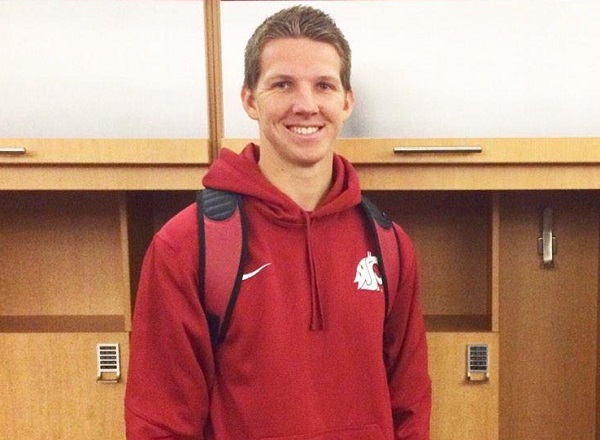
Medical science has revealed a lot over the past several years about the long-term effects of head injuries, and football players are among most susceptible people. Anytime we hear about depression or suicidal thoughts in a current or former football player, it’s natural to wonder if head trauma played a role.
If the case of Tyler Hilinski is any indication, the symptoms can begin at a very young age.
Hilinski, a former quarterback at Washington State University, committed suicide back in January. He was just 21. Greg Bishop of Sports Illustrated spoke with Tyler’s parents, Mark and Kym Hilinski, for a lengthy feature, and they revealed that doctors told them Tyler’s brain showed early signs of chronic traumatic encephalopathy — more commonly known as CTE.

Then the test results came back. First, the Whitman County medical examiner called to say that Tyler’s toxicology report showed no trace of drugs or alcohol. (“That actually made it worse,” Mark says.) The Mayo Clinic’s findings arrived next. Kym read the sentence — “After reviewing the tissue we can confirm that he had the pathology of chronic traumatic encephalopathy (CTE)” — and started to reconsider her entire search. The diagnosis was Stage 1, the lowest level. But still, Tyler was 21 when he died, he hadn’t played that much in college and for most of his life he manned the most protected of positions. If he had CTE, anyone could. She read that depression was one symptom for Stage 1 and a doctor told her Tyler’s brain looked “like that of a much older, elderly man.”
We have already heard of multiple NFL players who are said to have been suffering from CTE at the time they took their own lives, but it’s almost more disturbing to learn that a 21-year-old college kid was affected.
Hilinski’s younger brother, Ryan, is also a quarterback. He committed to South Carolina earlier this year and said he received guidance from Tyler, and Mark and Kym have studied CTE since Tyler’s death and presented Ryan with their findings. Ryan says nothing will stop him from following in his brother’s footsteps.
“I just don’t give a f—,” he told his parents. “I don’t care. I love this sport. This is not what hurt him. I’m going to do everything that Tyler wanted to do with football. I’m going to do that for Tyler, to honor him.”
What happened to Hilinkski is as tragic as it gets, and we can only hope education and modern science will help prevent it in the future.

